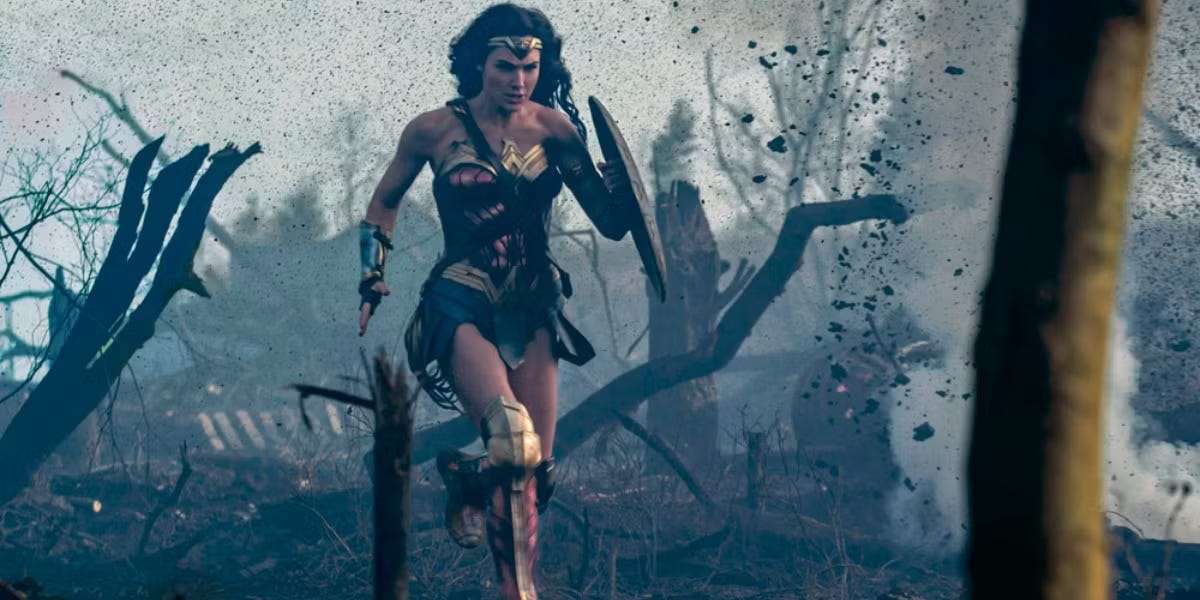I’ve just sat down in the K18 -K19 seats in the IMAX to watch the rebooted Superman starring David Corenswet, and directed by James Gunn. This one is for the Marvel Cinematic Universe (MCU), rather than the DC Extended Universe. The national anthem has just played its final bars. Someone from the recliner seats has screamed “Bharat Mata ki Jai!”
Rousing cheers have followed. Mine included. Them, a voice in the dark queries, “Humko bhi bolna hai kya?”
A brief history: Man of Steel released in 2013. True to DC, that one was grim. Henry Cavill’s Superman was brooding, aloof. A man of few words. He was a hitchhiker on a lonely road. A ghost in the air. His dark side was a hairs breadth away, and unlike his widely known ‘good guy’ image, this version didn't lock away his rage and bury it. In Man of Steel, Clark puts several California Redwoods through an ill-behaved drunk’s truck in a monstrous, bizarre sculpture to teach him a lesson. Try. Me.
Henry Cavill’s Superman, to put humans at ease, allowed himself to be handcuffed and perp-walked into court. But he didn’t allow anyone to dictate terms. With Henry Cavill, danger lurked just beneath the surface.
The following is one of the most famous quotes of Kill Bill: Vol 2, where Bill reflects on Superheroes and Superman, and uses this as a metaphor for Beatrix's (Uma Thurman) true nature.
"A staple of the superhero mythology is that there's a superhero and there's the alter ego. Batman is actually Bruce Wayne, and Spider-Man is actually Peter Parker. When that character wakes up in the morning, he's Peter Parker. He has to put on a costume to become Spider-Man. And it is in that characteristic that Superman stands alone.
Superman didn’t become Superman. Superman was born Superman. When Superman wakes up in the morning, he’s Superman. His alter ego is Clark Kent. His outfit with the big red S, that’s the blanket he was wrapped in as a baby when the Kents found him. Those are his clothes. What Kent wears – the glasses, the business suit – that's the costume. That's the costume Superman wears to blend in with us. Clark Kent is how Superman views us. And what are the characteristics of Clark Kent? He's weak. He's unsure of himself. He's a coward. Clark Kent is Superman's critique on the whole human race."
(My favourite scene of all Superhero films EVER is the No Mans Land scene in the World War I trenches, in Wonder Woman)
This is why I’ve always loved Man of Steel. There is no separation between Clark Kent and Superman. The film emphasized that he was born a hero, even before he put on the cape. He was always Superman.
David Corenswet’s 2025 Superman, however, is more boyish and sweet. There are dimples. A Midwestern college golden retriever, to Henry Cavill’s German Shepherd. A man of many words, expositions, and asides. His dark side hasn’t taken root yet. This Superman is still finding himself.
To prove he is a friend, he will let himself be slammed to the pavement. He will lie on the ground, as they cuff him, his head lying in a crater in the road that was created by impact with HIS body.
The only way to describe Jamie Gunn's Superman is that it's very comic-book. It's jammed full of comic book characters that are only there to wink at the audience, like Hawk Girl and Green Lantern, when, for 'story progression purposes', and general sneering, only one of them would have sufficed. Here's another comic book moment rendered in moving images: Lex Luthor's nefarious plan splits the foundation of the city. As NYC empties, there's undue focus on an aquarium containing an upturned turtle by a fleeing New Yorker.
The heroic moments of the film were tempered by its inclusion of moments of levity.
But I’ll tell you where the film had me. When a young boy from Jarhanpur, facing an invasion from Boravia, raises a flag with Superman’s crest on it.
The Politics of Superhero Films
Every superhero film is political. It has to be, to strike a chord. Batman, especially The Dark Knight, was a tale of the have and the have-nots, the moral path when there is institutional decay, and seemed to be a libertarian critique of government ineffectiveness. Wonder Woman pitted Gal Gadot, an Israeli Jewish actress, against the Germans on the battlefield of WWI.
Which brings me to the next point – the politics of the Superman film. The central conflict of the film is the threat of Boravia, a Caucasian country, invading Jarhanpur, an Arab inspired country, without provocation. Even the way that the conflict plays out in the film, with armed Boravian tanks taking on civilians wielding nothing but staffs, is a parallel to the war in Gaza, as much as Jamie Gunn may try to deny it. Boravia’s president looks like a cross between Trump and Boris Johnson, and consequently, wants to wage war. Lex Luthor is relevant because not only is he jealous of Superman’s abilities and wants to use science to defeat him, but also because the deal between him and Boravia is that he gets a part of Jarhanpur to turn into Luthoria. He wants to be king. (Also draws with real-life parallels) But Superman has been suspicious of Boravia right from the get-go, which is why he violates treaties to fly into Jarhanpur at the start of the film.
( This one could pretty much be used to explain the fictional Boravia - Jarhanpur conflict in the Superman (2025) film.)
Here, Superman takes sides in the Israel-Palestine conflict. He is for Palestine, for the side of the invaded.
And that’s the strongest part of Jamie Gunn’s Superman. Not the overload of VFX, not the Lego-like anti-proton river, or the portals, or the pocket universes, but where it draws parallels with reality, and becomes human. This Superman may lack the mythic gravitas of Man of Steel, but it answers the question Zack Snyder left hanging — not who is Superman, but what does he stand for?
In the MCU, Superman chooses.







this was really well written and connected to the politics of the world!
but what happened after the national anthem incident? Haha